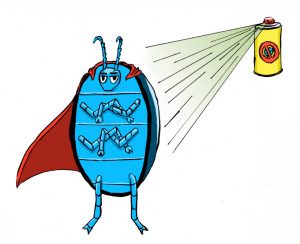Preparing for a world without antibiotics
By Elliot Chan, Contributor
In an annual assessment released in mid-October, the World Health Organization (WHO) addressed Tuberculosis as one of the most fatal drug-resistant diseases. In 2011 1.4 million people died due to untreatable cases of TB, of which 430,000 were also suffering from HIV. The numbers seem horrific, but Dr. Mario Raviglione, director of WHO’s Stop TB program, found a silver lining: 51 million people have been cured of TB and 20 million lives have been saved since 1995, a fact Raviglione attributed to new tools for detecting the disease. But concerns are that each country’s funding is different. India, China, Russia, and South Africa represent two-thirds of the antibiotic-resistant TB cases.
Reviglione informs that new rapid molecular diagnostic test and resistant forms of TB called Xpert, based out of a Californian company, Cepheid, are being shipped to 67 developing countries. But WHO officials remain apprehensive with the levels of financial support. Between 2013 and 2015, WHO is projected to need $8 billion per year to fight TB, and is already facing a $3 billion gap for 2013. It is this lack of support that will cause millions of unnecessary deaths in the next few years.
Trades and travel have been the leading cause of antibiotic resistant diseases or superbugs. Research development over the past few years have shown those antibiotics used on our livestock are the same used on humans. This process is helping our livestock such as chickens become healthy for pre-consumption, but it is weakening us after. Some of poultries’ harmful bacteria, such as salmonella and E. coli, are taking attributes from superbugs and causing incurable infections. Because antibiotics are considered drugs and not additives by Health Canada, there is currently no limit to the amount farmers can choose to use.
Agricultural corporations are putting the onus on consumers, suggesting that the best means of avoiding cross-contamination and bacteria is to handle and cook the food properly. But activists suggest that the only way to end the corporate reign over the drug usage is to make wiser choices at the market. Although buying organic or antibiotic-free food does not guarantee versions without superbugs, it will leave a message for the companies.
Viruses cause colds and flus, while coughs and sore throats are attributed to respiratory infections, 90 per cent of which do not require antibiotics. The best medicine concerning those illnesses is resting, drinking fluids, and avoiding the spread of germs. If antibiotics are prescribed, it is important to finish the treatment even if you feel healthy before completion. Washing your hands, staying up to date on vaccination, and avoiding others when sick are pinnacle methods to disease mitigation.
Antibiotic Awareness week takes place from November 12 to 18. Visit antibioticawareness.ca for more details.

